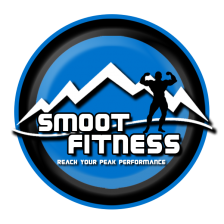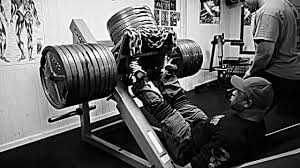“Exercise machines suck.”
“Exercise machines don’t build muscle.”
“Exercise machines don’t build strength.
“Exercise machines aren’t functional.”
These are just a handful of the things I hear on a regular basis regarding exercise machines and their use – or lack thereof – in an exercise routine.
Now, I’m all for compound, barbell exercises, and I certainly think the barbell lifts should be prioritized for anyone serious about building muscle or strength.
But… that doesn’t mean exercise machines are worthless, nor does it mean they don’t have a place in a structured workout routine.
They do.
They’re highly beneficial for certain people in certain situations.
And none of the before mentioned claims are even remotely close to being correct.
Exercise Machines DON’T Suck
First and foremost, who’s to say what sucks and doesn’t suck when it comes to exercise?
To me, cardio sucks.
Running on the treadmill – or riding in place on an exercise bike – is more boring than biting off my toenails and counting the seconds until they grow back.
To my dad, strength training sucks.
It’s boring, brutalizing, and he’d probably read 50 Shades of Grey – twice – before he ever set foot in another squat rack.
Is either one of us wrong for disliking the other person’s activity?
No.
But if I were to say that “cardio sucks,” or my dad were to say that “strength training sucks,” it’s invalid because what sucks to one person may not suck to someone else, and saying something “sucks” is a completely subjective statement.
And, the same holds true when it comes to exercise machines.
For an elite level powerlifter – with no injuries – looking to improve their squat, bench, or deadlift, sure, exercise machines probably “suck” for that goal.
But, what happens when they get injured?
What happens when they can’t perform a squat, bench, or deadlift for the next 6 months, yet they still have the ability to perform the leg and chest press machines, and maintain at least a little bit of their strength, size, and mental sanity?
Suddenly exercise machines don’t suck so much do they?
How about the overweight guy new to exercise that has absolutely no idea how to squat, and who doesn’t have the strength, stability, or movement capacity to perform a closed chain barbell exercise?
Is a routine consisting of exercise machines – that stimulate his muscles, builds some strength, and burns some calories – a good starting point for this person?
Absolutely.
Just because something doesn’t fall in line with YOUR goals or what YOU enjoy doing doesn’t mean it sucks.
Exercise machines may not be the best choice for everyone, but they’re certainly the best choice for someone.
And they’re a useful tool that should be kept in any athlete or fitness enthusiast’s toolbox.
Exercise Machines DO Build Muscle
Anything that imposes a stress to your muscles – whether it’s a mechanical stress from increasing load or a metabolic stress from flooding your muscles with blood – stimulates a growth response.
And – although it’s performed in a seated or supine position without much (if any) stability demands – that’s exactly what an exercise machine does.
And, to a degree, it does so better than a barbell exercise (or at least, it makes up for where barbell exercises are lacking).
Barbell exercises are superior for building strength and athleticism (they have a much greater loading capacity, mimic fundamental movement patterns, challenge body control and coordination, and stimulate a much greater hormonal response), but they don’t ISOLATE a muscle to the same degree that machines do.
And, when it comes the goal of maximizing hypertrophy (muscle size), barbell exercises and machines are near-equally important.
Exercise Machines DO Build Strength
A bigger muscle is a stronger muscle.
If an exercise machine builds muscle, then – in an indirect kinda way – it also builds strength.
But, exercise machines do directly build strength, because they load your muscles with an external resistance.
And if a muscle has to generate greater force to overcome an increasingly greater resistance, it has no choice but to get stronger.
Of course, does that mean exercise machines build strength to the same degree as the barbell lifts?
No it doesn’t.
But, for someone new to exercise, they’ll build a great deal of strength in a safe and efficient manner.
And for an advanced level athlete looking to rehab an injury, they’re a great way to maintain strength and reduce the overall recovery time.
Exercise Machines ARE Functional
Or at least, they’re not NOT functional.
But, then again, what does “functional” even mean?
To some, the barbell lifts aren’t functional.
To others, a shake weight IS functional (ha, what a load of BS).
There’s no solid definition – that I’ve come across – as to what “functional” actually means.
So, I’m gonna go with my definition of the word “functional,” which is:
Anything that functions to enhance your ability to reach a desired a goal.
For the majority of us, our goal is to get healthier, stronger, bigger, and leaner – and exercise machines help us do just that.
So, based on the definition provided above, exercise machines ARE functional.
Like What You See?
Get the Smoot Fitness Guide to Getting Stronger - FREE.



Leave a Reply